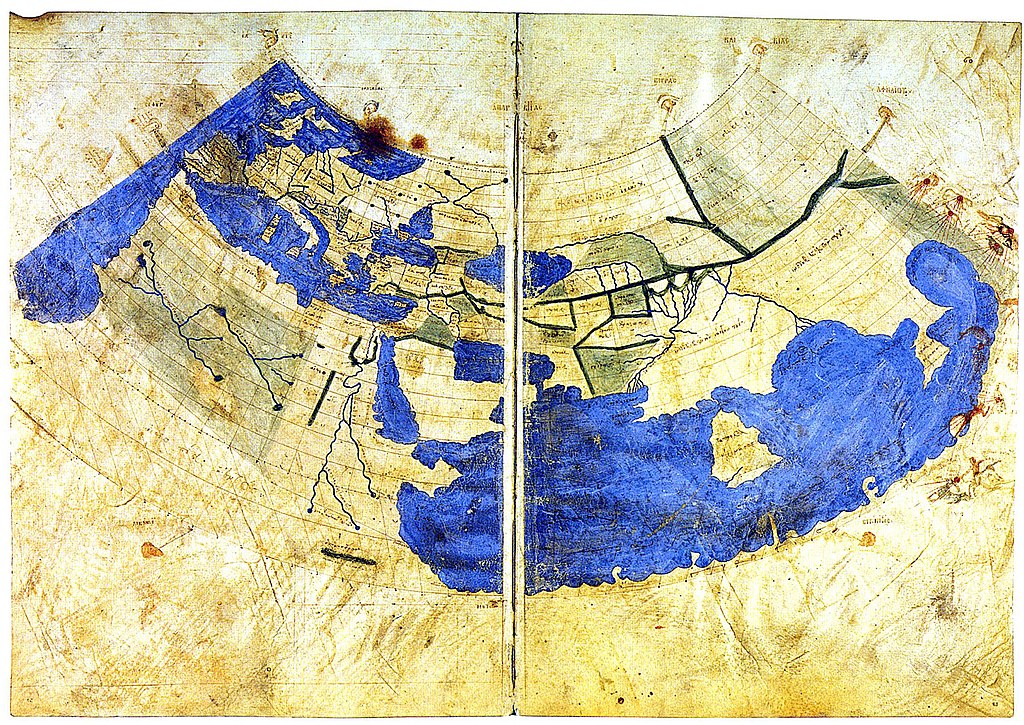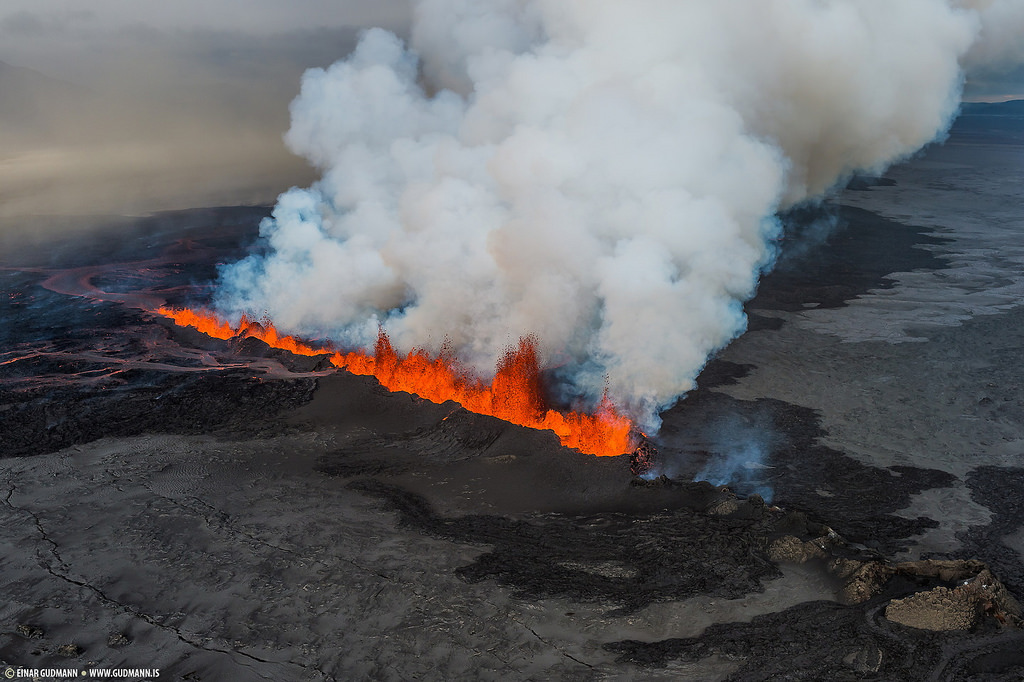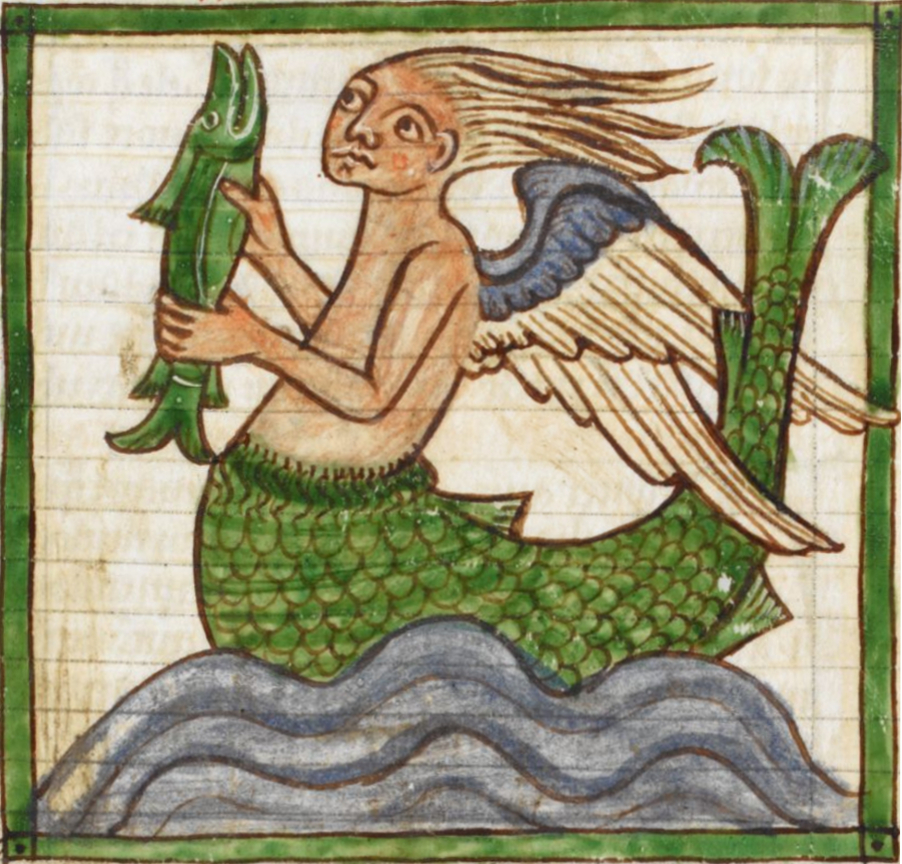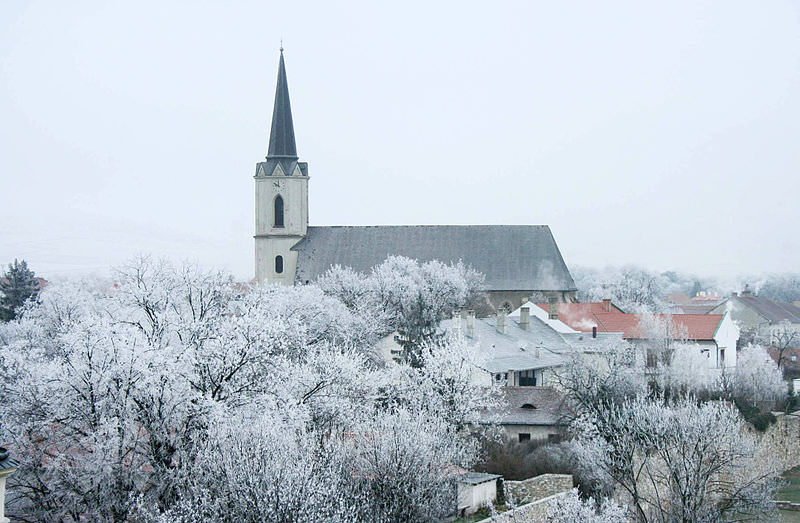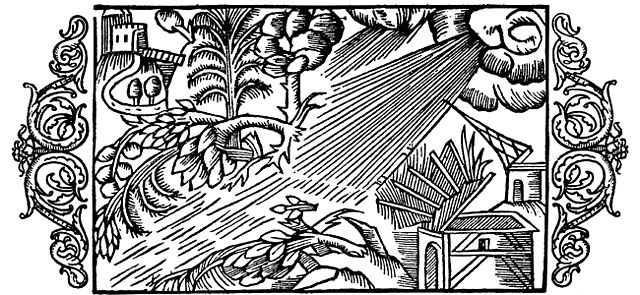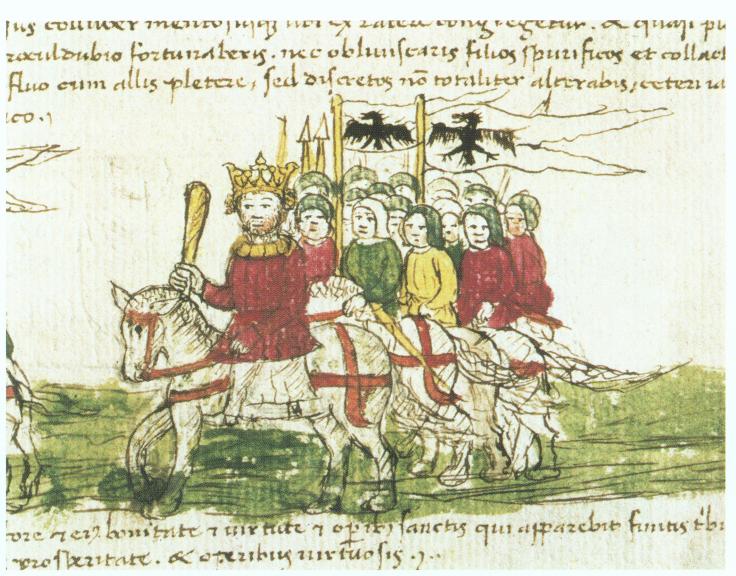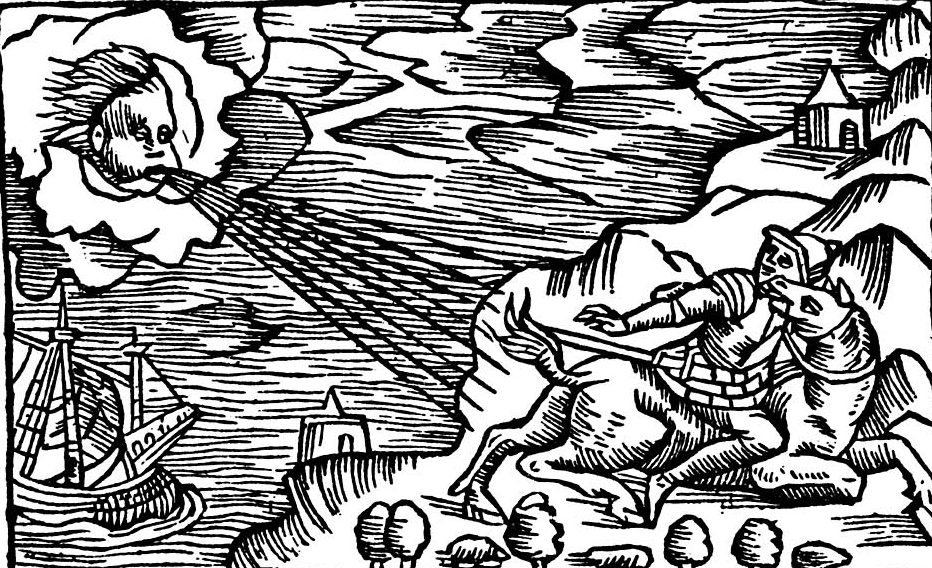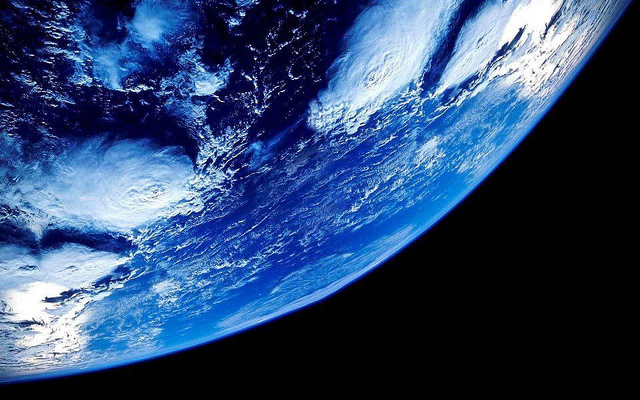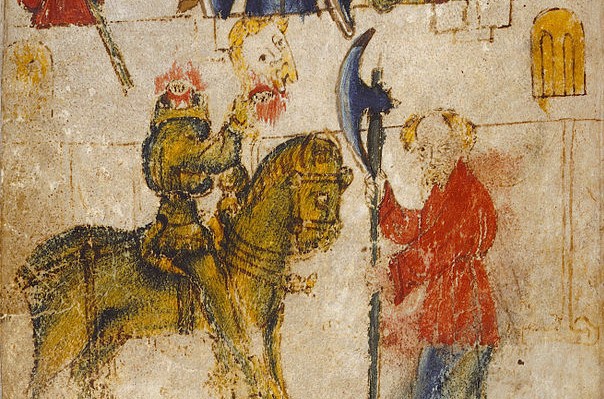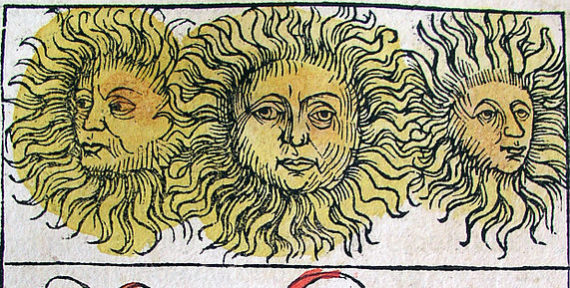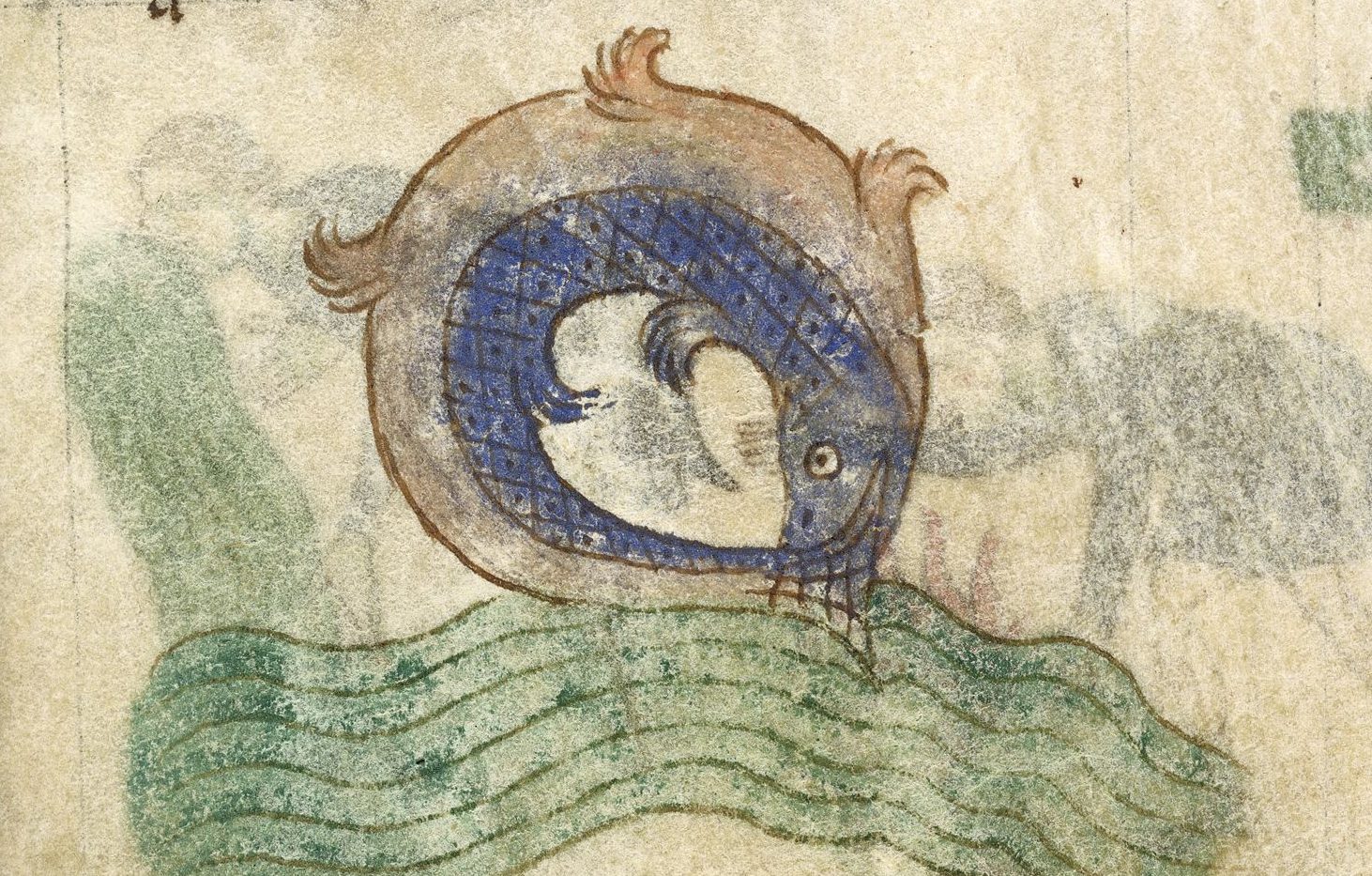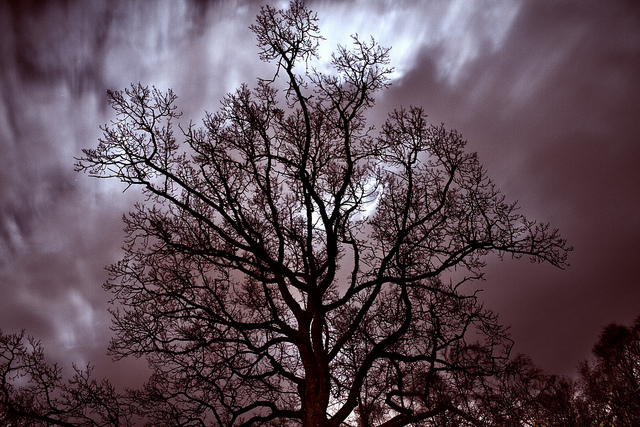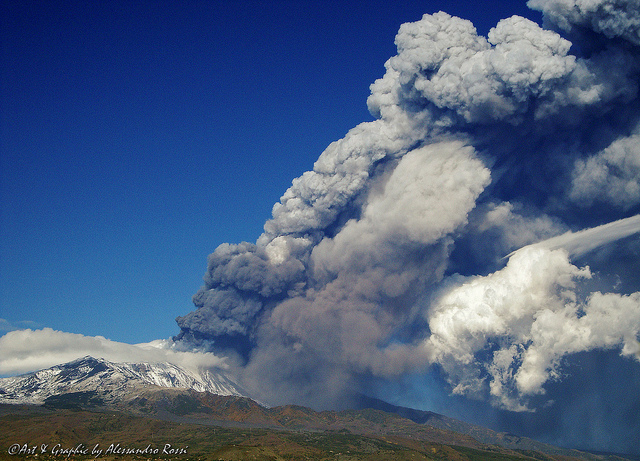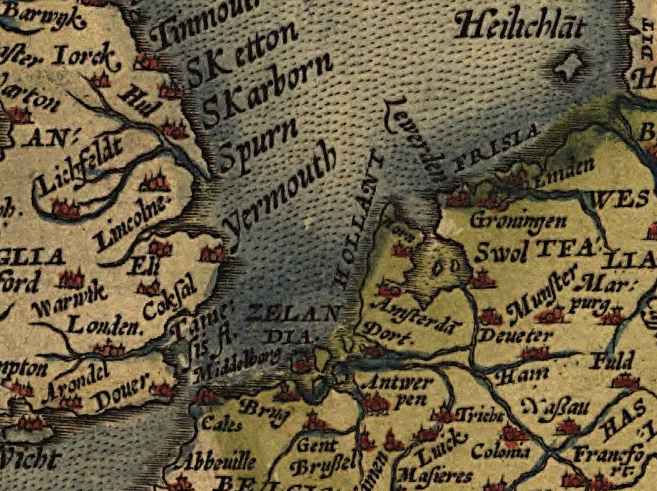Earth, air, fire, and water in Beowulf
In this thesis, I explore the intersection of nature and human society in the poem Beowulf.
Volcanic eruptions in the 6th century plunged Eurasia into hunger and disease
A recent study indicates that volcanic eruptions in the mid 500s resulted in an unusually gloomy and cold period, and that the years 536 and 541-544 CE were very difficult for many people.
How a volcanic eruption influenced Iceland’s conversion to Christianity
Memories of the largest lava flood in the history of Iceland, recorded in an apocalyptic medieval poem, were used to drive the island’s conversion to Christianity, new research suggests.
Seven Wonders of the Medieval Far North
Konungs skuggsjá explains the wonders of the strange waters around Greenland, a far corner of the medieval world.
Climate of Doubt: A re-evaluation of Büntgen and Di Cosmo’s environmental hypothesis for the Mongol withdrawal from Hungary, 1242 CE
Büntgen and Di Cosmo’s recent article in Scientific Reports attempts to tackle an important historical mystery (the abrupt Mongol withdrawal from medieval Hungary). We agree with their underlying assumption that an interdisciplinary analysis of environmental and documentary resources can result in a better understanding of the events. However, some of the supporting evidence does not withstand critical examination in the context of the Mongol invasion of Hungary.
Medieval Iceland, Greenland, and the New Human Condition: A case study in integrated environmental humanities
By interlinking analyses of historically grounded literature with archaeological studies and environmental science, valuable new perspectives can emerge on how these past societies may have understood and coped with environmental impacts.
Natural Disasters and the Crusades: Framing Earthquakes in Historical Narratives, 1095-1170
This thesis explores perceptions of earthquake causality in the accounts of twelfth century Syria and the ways that medieval views of natural disasters influenced historical writing.
Nature during the Crusades: Physical and psychological affects from the environment in crusader narratives
As the crusaders were highly affected by their religion so also were these encounters with nature interpreted within the religious framework. Therefore, it is interesting to see how the crusaders wrote about these encounters with nature.
How Weather Ruled the Vikings
By Danielle Turner When the weather determines most happenings in a person’s life, what kind of cultural changes emerge as a direct result…
Starvation Under Carolingian Rule. The Famine of 779 and the Annales Regni Francorum
How vulnerable was the Frankish society to famines in the Early Middle Ages?
The Medieval Quiet Period
The Medieval Quiet Period By Raymond S Bradley, Heinz Wanner and Henry F. Diaz The Holocene, Vol 26, Issue 6 (2016) Abstract: For several centuries…
Greening Gawain: connecting environmental damage and masculinity in Sir Gawain and the Green Knight
This paper explores medieval environmental attitudes through a historical reading of Sir Gawain and the Green Knight
Perceptions of Hot Climate in Medieval Cosmography and Travel Literature
This article is an attempt to examine bow climate, especially hot weather in exotic locations, was viewed by European travellers and writers in the middle ages.
Environmental Scarcity and Abundance in Medieval Icelandic Literature
Can medieval literary texts tell us anything about the environmental conditions and the availability of natural resources in premodern times?
Historical rise of waterpower initiated the collapse of salmon stocks
We demonstrate that populations declined by up to 90% during the transitional period between the Early Middle Ages (c. 450–900 AD) and Early Modern Times (c. 1600 AD).
Trees as a Central Theme in Norse Mythology and Culture
The continual theme of trees in Norse Mythology is important to our understanding of the cosmology of Norse Mythology.
A Collapse of the Eastern Mediterranean? New results and theories on the interplay between climate and societies in Byzantium and the Near East, ca. 1000–1200 AD
The reflection about the impact of climate on human society goes back to antiquity. It has gained renewed intensity with the discussion about climate change and its possible anthropogenic causes in the last decades.
What is a Volcano? A Medieval Answer
Volcanoes have long fascinated people. They have know how dangerous they can be, but throughout history many have tried to figure what causes them. Here is the explanation given by the medieval scholar Albert the Great.
Science and Nature in the Medieval Ecological Imagination
This dissertation explores the intersections between nature and culture in medieval literature and art with particular focus on Geoffrey Chaucer’s House of Fame, the thirteenth-century French Bible Moralisée, and William Langland’s Piers Plowman.
Climatic and environmental aspects of the Mongol withdrawal from Hungary in 1242 CE
The Mongol invasion of Eastern Europe, and especially its sudden withdrawal from Hungary in 1242 CE, has generated much speculation and an array of controversial theories. None of them, however, considered multifaceted environmental drivers and the coupled analysis of historical reports and natural archives.
Historical evolution of forest management in Europe and in Japan
This paper describes in brief the historical evolution of forest management in Europe and in Japan and the motivations of these changes. In particular, the paper analyses three periods: pre-industrial (from the Middle-ages until the mid-17th century), industrial (from the mid-17th until the mid-20th century) and the post-industrial period (from the late-20th century until today)
Researchers discover a ‘Little Ice Age’ in the 6th century
‘This was the most dramatic cooling in the Northern Hemisphere in the past 2000 years.’
Flood Security in the Medieval and Early Modern North Sea Area: A Question of Entitlement?
All over the North Sea Area the later Middle Ages saw repeated flood disasters and massive land losses in coastal wetlands: in England, the Low Countries, Northern Germany and Southern Scandinavia thousands of hectares of reclaimed land and hundreds of villages were lost to the sea.
The 1356 Basel earthquake: an interdisciplinary revision
The 1356 Basel earthquake is well known as one of the most damaging events in intra-plate Europe within historical times. It was one of several devastating catastrophes in the 14th century.
10 Natural Disasters that Struck the Medieval World
Here are ten of the most important natural disasters that took place in the Middle Ages.

